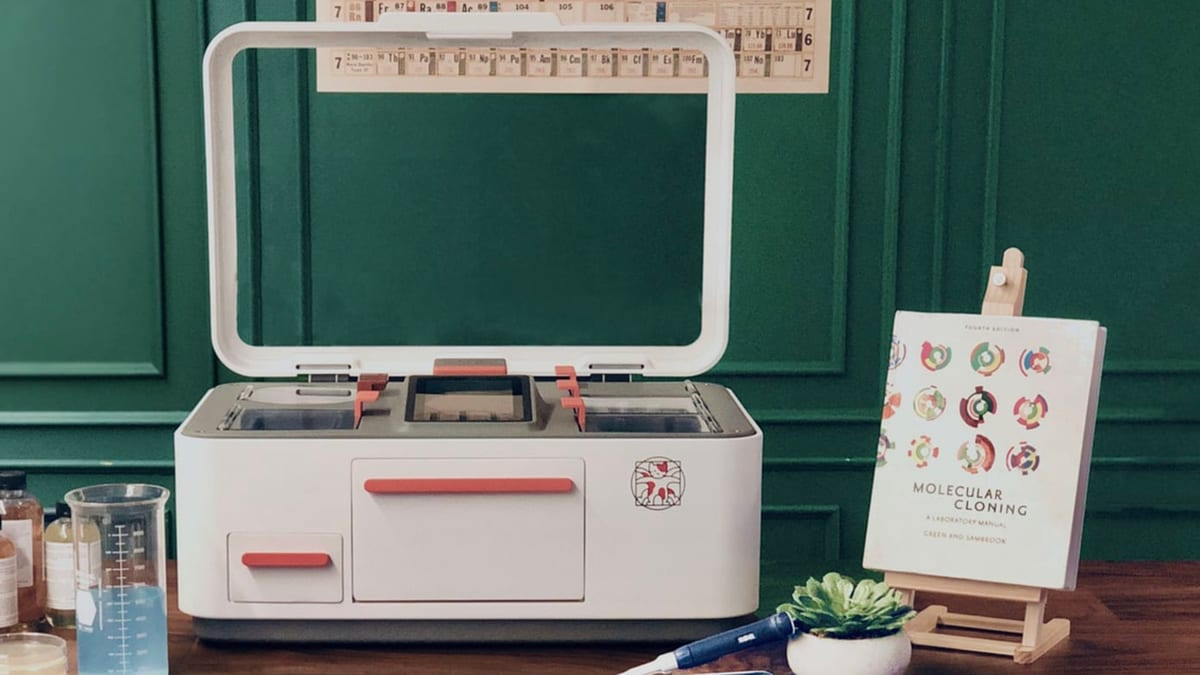
Generally, CES is where you go if you want to see uncanny valleys made of gorgeous screens or to try a salad prepared by a robot. Eureka Park, though, is home to oddball projects that often grab you in ways you don't always see coming. That was my experience with Feles, a startup based out of Cambridge, Massachusetts: This small team is hard at work on its first product, an all-in-one home laboratory that gives people the opportunity to get acquainted with biological lab work.
The Feles Box is about the size of a large cooler and contains a thermocycler, incubators for cultivating subjects in petri dishes, a gel dock for electrophoresis, a centrifuge and a spectrometer. Oh, and a tiny fridge to house those tiny tube racks you'll probably be working with. If some -- or most -- of these tools sound complicated -- well, yes. They can be. Feles is trying to take the sting out of figuring them out though, with clever software that guides would-be biohackers through experiments on an integrated touchscreen.
I was never much for the sciences, but I still have fond memories of bio class in high school, meticulously pipetting fluids and waiting to see the distinct bands of DNA in a slab of gel after an electrophoresis experiment. Feles hopes to deliver those kinds of experiences -- plus many more made possible by subscription kits for specific experiments and art projects -- to audiences who may not have had the sort of educational luck I did. And to be perfectly clear, Feles wants to do much more than give people a rudimentary understanding of lab work. The team notes that its lab in a box could be used for, say, microbrewing experiments or feats of molecular gastronomy. In that way, the team is trying to imbue in people that getting involved in the biological sciences doesn't have to be droll.
What gets me, though, is the vaguely Fisher-Price vibe this lab in a box gives off: It imbues the components wedged inside with a sense of accessibility and friendliness that I wasn't expecting. The company's adorable Vitruvian-cat logo doesn't hurt either. Maybe it's no surprise then that many of Feles' early fans are educators looking to give students a non-intimidating first look at serious lab techniques. (The rest are mainly bio-enthusiasts looking to get their hands on clever, well-designed gear.)
The only rub? For now this home lab costs it backers around $1,000, which is obviously a decent chunk of change. Still, for well-heeled fans or schools looking to expand on their biology-education curricula, Feles' work might be worth the splurge.
by: via https://www.AiUpNow.com/